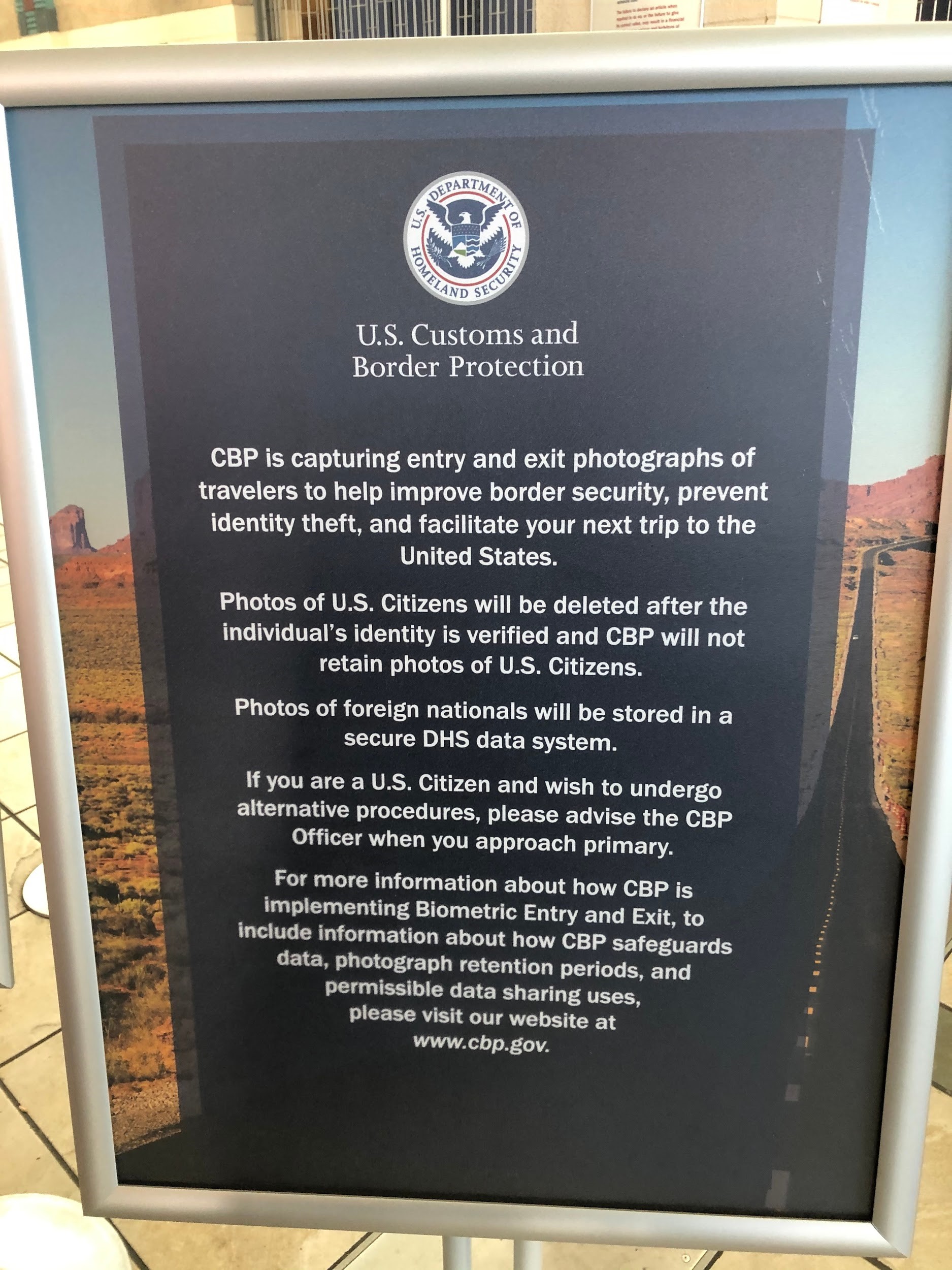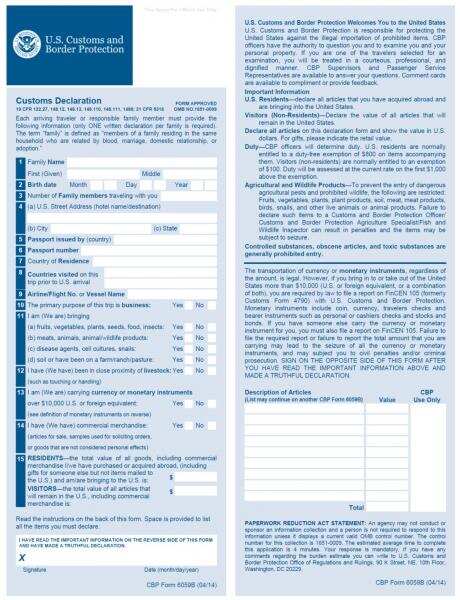Why I Opted-Out of Facial Recognition at Customs and Border Patrol
Why does my face need to be scanned?
By Pablo Morales
I have recently returned the the United States, after a few weeks in Mexico. The time flew by and I made my way back home.
The last few weeks I've been reading on facial recognition. This has been a topic I've had an interest for quite some time. Our phones, our computers, and any item that had humble beginnings such as a door bell all have some form of facial recognition built in or programmed. It's weird to think about how you can unlock your phone with your face.
Privacy has become an issue with all these conveniences. Everywhere you go, your face (you as a person) is being tracked. EVERYWHERE!.
Since I was traveling, I have been reading on facial recognition and the TSA
As a U.S. Citizen, I can opt out of facial recognition from Customs and Border Protection (CBP) :
Here is a sign:

A sign allowing U.S. citizens to opt out of facial scans.
The Experience
I decided before I arrived at Los Angeles International AIrport (LAX) I decided to once I got to customs I would ask them to do a manual document check. I was already expecting them to ask me a bunch of questions. Things would either be easy or hard. I didn't want them running my face across different databases. Why should I give them more of my biometrics when they have this already?
When I arrived at the he Customs and Border Protection Agent booth/station, I told them that I didn't want to my photo taken for facial scan. The agent went off on me. It seemed that he was shaming me for exercising my right to not have my face scanned. There were signs all over saying to inform an agent if I don't want my face scanned. This is exactly what I requested.
The Agent asked me the following questions
- "Why are you doing this?"
- "Why are you making this more complicated?"
- "Do you see how many people have gone through starting this conversation?"
- "Do you that we have your facial biometics because you have a passport and driver's license?"
- "Any identity document you have is a biometric?'
It seemed that I was inconveniencing them for doing their job and providing a manual document check as my right to not to have my face scanned and verified across databases. The thing that made me mad was the intimidation tactics it seemed the agent was trying to get across. I didn't really appreciate that at all.
Many of the questions the agent asked also came from the CBP Declaration Form 6059B.

I was also asked where in Mexico I went, what other times I left the United States. I'm a person who provided to the point answers when asked. It's generally a good idea to provide answers not too short or answers too long either. They are law enforcement, you don't want to give unnecessary information to them either.
I stood my ground. Eventually this whole ordeal was over and I moved on to collect my luggage.
The Issues
The issue I have is not the government has my biometrics, the problem I have is the how and who handles my data. This concern frightens me more when third-party companies or private companies are contracted by the government to handle this data. When other entities get involved,
- How much control does a citizen have?
- How much does the government actually follow up what these companies are doing with our data?
- How is this information secured from hackers and kept safe?
I felt so violated when I had to verify my identity for ID.me to access my IRS (Internal Revenue Service) to access my tax transcript. Why should a third party service be put in the way of accessing my government tax transcript? Why is identity verification being outsourced to a private company? The service wasn't really great at all. . It's so flawed for people of color.
We're in a Police Lineup
Why You’re in a Police Lineup, Right Now | NYT Opinion
We're all in a police lineup. This New York Times video does a great job at explaining the situation we are all living in. We need to protect our rights. Our rights are being slowly taken away with all the conveniences that we have. Many people are at risk for being arrested for crimes that they didn't commit because of "matches" facial recognition provides. This affects people of color and minorities.
Conclusion
I know I can't control every aspect and function, but until we have laws in place to protect our biometrics and make sure that we know our rights. We need to bring more attention to this matter. We are all at risk. People of color and minorities are at risk. Even if you have, "nothing to hide".


